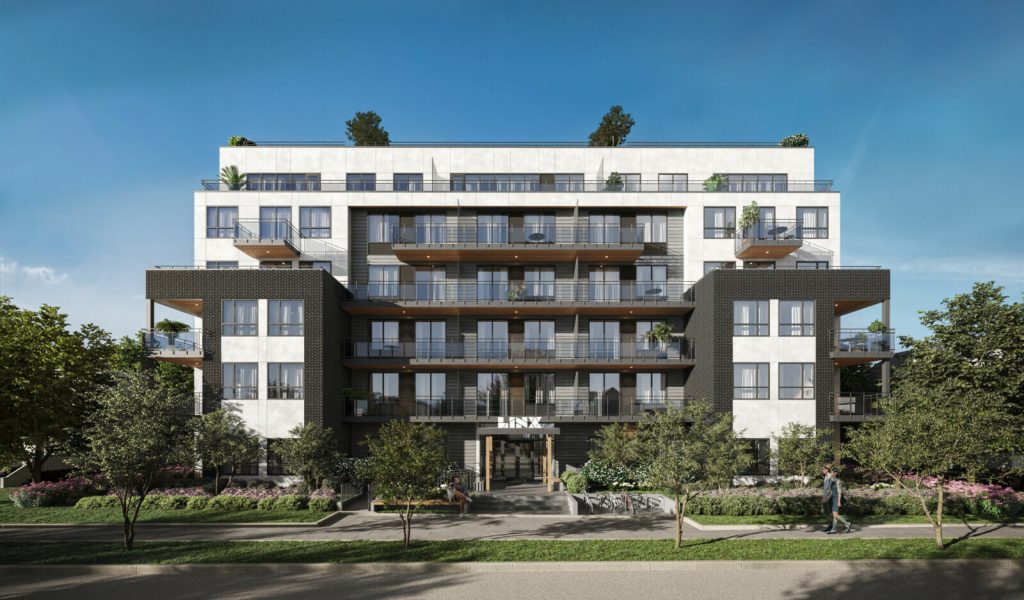
What is a Land Assembly?
A land assembly is when homeowners collaboratively come together to sell their properties as a package to a Developer in order to get a higher price for their property relative to selling as individuals. As new zoning policies come into effect throughout Greater Vancouver, many homeowners with older homes or underutilized lots profit immensely from the improved zoning changes. Typically, areas that originally allowed single family homes or duplexes are rezoned to allow for townhomes, 4 – 6 storey apartments, or high-rise developments.
Key Tips to a Successful Land Assembly:
1. Accurate Pricing:
It’s a common misconception that Developers have endless cash to spend, when in fact, they are incredibly analytical when analysing the price of land. Pricing your property based on a professional analysis of the market is essential. This includes knowing what the finished product will sell for and subtracting the costs for construction, development, marketing, and profit. The remaining balance is what a developer will pay for your land. I can provide you with a detailed “Residual Land Value Calculation” to ensure that you are well informed.
2. Treat it like a Business Transaction:
As homeowners, we often place a sentimental premium to the value of our properties – especially if it’s a custom-built home or one that has been in the family for multiple generations. While your home may have some incredible features and memories, a developer is looking purely at the value of your land. It’s important to remain emotionally detached and business-minded in a land assembly transaction.
3. Collaboration & Fairness:
The Number 1 reason why land assemblies fail is because one homeowner feels entitled to more money than their neighbours. This is most common if they are a corner lot owner or their physical home is newer or larger than their neighbours. It’s critical to remember that a developer runs an analysis based on your lot size, and not necessarily the proximity of your lot on the block or the age or quality of your home. I run a transparent process and set very clear expectations from the beginning to ensure that everyone is treated equally and without bias. While the specific details of each contract are confidential and negotiable from owner to owner, the listed and final sale price will be public record. For this reason, it’s essential that everyone remains fair throughout the pricing and negotiating process.
4. Negotiating the Best Deal Terms Possible:
Pricing is just one component of the transaction:
- Due Diligence/Subject Waiver Period: Once you’ve agreed to a Purchase Price and general terms below, the Developer has a certain amount of time to decide whether they want to commit to the purchase. Vetting the Developer is important to ensure that you are not “tied up” with an unreliable buyer. This can be anywhere from 15 days to 6 months depending on the nature of deal and complexity of the development potential. Once the Developer “Waived Subjects” you have a legally binding deal and can expect to complete/close on the transaction. In complex transactions there can be several Subject Removal milestones.
- Deposit $: This is the non-refundable $ that the Developer will put down towards the Purchase Price once they Waived Subjects. This may be paid directly to you or held in Trust by a Brokerage or Law Firm. In complex transactions there may be several refundable and non-refundable Deposit milestones.
- Completion/Closing Date: This is the date in which the land is transferred to the Developer and money is transferred into your account. Ideally, you want the Completion/Closing Date to be relatively close to the subject waiver date although it can be anywhere from 1 month to 1 year following – depending on the complexity of the transaction.
- Possession Date: This is the date in which the Developer physically takes over the property and you are required to move out. It is common in a Land Assembly transaction for the Possession Date to be delayed months after the Closing Date at no additional cost to you so that you have time to find your next home.
Your Next Move
- Once the Developer has waived Subjects you can send the documents to your bank/mortgage provider and can start your pre-approval process to know how much you can afford for your next purchase. If your Subject Waiver and Closing period is very tight, I recommend doing this as soon as you have a signed deal. In general, I recommend using a Mortgage Broker rather than a specific bank unless you have an excellent relationship with your banker.
- Once you are pre-approved and you know what type of property you’re looking for, I will setup a customized property search and ensure the dates of your next purchase line up perfectly with the Closing and Possession date of your land assembly sale. It’s highly recommended that you use the same Realtor and Lawyer/Notary for both transactions to ensure a smooth process.
100% Guided Support
- The most common hurdle homeowners face is FEAR and TRUST, especially in a competitive market. I can 100% assure you that I will be there to guide you through every step. With a business built solely on referrals, I take tremendous care in knowing that I am a solid and reliable resource for my clients at all times. With my guidance and trusted referral partners, you will be fully supported. From lawyers and mortgage brokers to disposal companies, movers, trades people, and interior designers, you can rely on me as a “one-stop-shop” for all your real estate and homeowner needs.
